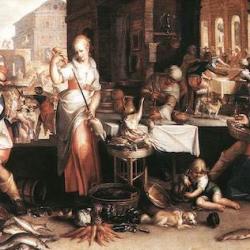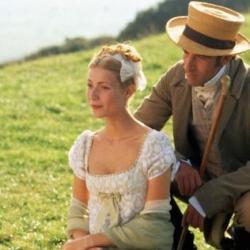Devoney Looser says that Jane Austen’s juvenilia is an exercise in burlesque. Not the strip-tease variety, but not so far from that either: “Where a parody sets out to mimic conventions and make us laugh, a burlesque relies ‘on an extravagant incongruity between a subject and its treatment.’ They are bolder and more coarsely humorous pieces that go beyond silly copies, like turbo-charged parodies.”
Austen’s juvenilia consists of “74,000 words of unpredictable snark,” with lines like this from Love and Freindship: “You are this Day 55. If a woman may ever be said to be in safety from the determined Perseverance of disagreeable Lovers and the cruel Persecutions of obstinate Fathers, surely it must be at such a time of Life.”
All quite, quite deliciously true. But I think that Looser makes a misstep when she characrterizes the juvenilia as “the most feminist” of Austen’s writings, and when she wonders what made Austen draw back from “progressive impulses.”
That’s a misstep not only because it projects contemporary categories onto Austen. It misleads because “feminist” can mean so many different things. It also overreads the evidence of the juvenilia. Looser writes that “Austen was a child-writer of great, raucous, gender-role-defying fun, an irreverent observer of life’s ridiculous conventions and fiction’s silly habits.” But gender-defiance of the sort Austen depicts is as old as tomboys; growing up in a house full of boys, do we think that she never wanted to be one, to do what boys get to do? And, if she did, does that make her a “feminist”?













